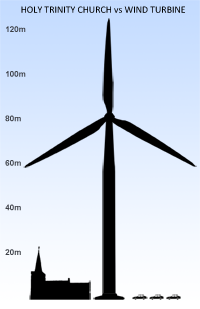- Home
- Proposals
- The Arguments
- About Us
- News
- BBC bias on climate change
- Latest News
- Climate change balance lost by BBC
- Energy Prices-The Times
- Turbines trash landscape benefit billionaires
- Global Warming Panic Over!
- Mini-Nukes the future
- The dirty secret of Britain's power madness
- Extreme weather the new Global Warming
- Tax Payers Alliance Energy view
- Britain can't afford wind power
- Fracking = prosperity?
- Its time to drill- Times leader
- Thoughtful article on Fracking
- Wind double subsidised
- Deluded energy policy
- The EU U-turn over energy
- Windfarm Wars Company in Churchover
- New noise guidance increases risk of harm
- Peter Lilley MP, Delingpole's new hero
- Shale Gas update 2013
- Maggie U-turned on Global Warming
- Devastatingly sad news
- 'smart' energy technology
- Engineers surveyed 2011
- Lord Turnbull speaks out
- Miracle shale gas
- Planning application refused!
- Warwickshire heritage beauty spot protected!
- Press
- Articles
- Letters
- How To Help
- Donations
- Letters of Objection
- New Churchover PC Objection
- New Historic England Objection
- Churchover Resident Objection
- CPRE Objection
- English Heritage Objection
- Objection by expert R&F historian
- Leicestershire County Council objection
- Warwicks CC Ecology objection
- Harborough District Objection
- Churchover PC Objection
- Bitteswell PC Objection
- Pailton PC objection
- Some other Objections sent
- Rugby BC Planning Committee
- Contact Us
It's time to drill- Times leader
The Times June 28 2013
Fuel the Future
New estimates of Britain’s shale gas reserves beat even the most optimistic forecasts. The country needs companies to start drilling now
Danny Alexander read out a blizzard of numbers yesterday to put flesh on the bones of the coalition’s plans for capital spending on infrastructure. None of them was as significant as a figure he left out — the British Geological Society’s latest estimate of Britain’s shale gas reserves. The BGS says more than 1,300 trillion cubic feet of gas lie under Yorkshire and Lancashire alone.
The multiplier effects of big public spending projects on the wider economy are always uncertain. The effects of discovering a mother lode of relatively cheap energy on your doorstep are not.
The industrial might of the United States in the early 20th century was built on cheap domestic oil. North America’s recovery since the 2008 crash — sluggish but still enviable by European standards — has been fuelled largely by the rapid exploitation of shale oil and gas reserves from the Dakotas to California. Their effect on domestic energy prices and American energy security has been so dramatic as to make a sideshow of President Obama’s vision of a US industrial future based on wind turbines and solar cells.
A similar transformation of national energy supply is possible in Britain. It could create tens of thousands of jobs, boost tax revenues, improve a lopsided balance of payments, end British energy dependence on foreign gas suppliers and exert steady downward pressure on domestic prices.
The figures are compelling. The estimate of 1,300 trillion cubic feet is of “gas-in-place” rather than gas that is known to be commercially recoverable. But at the accepted US rate of 10 per cent recoverability, the figure still represents a 26-fold increase on the last BGS estimate for the same area from 2010. Even at an extremely conservative 1 per cent recovery rate, the figure means Britain has two and a half times more shale gas in what is known as the Bowland/Hodder formation than was thought three years ago.
More gas lies in the same formation outside the boundaries so far explored. More still is held in other formations elsewhere in Britain. The American experience, in the words of a report by the US Energy Information Administration, is that such reserves “have proven to be quickly producible in large volumes at relatively low cost”. Even if costs prove higher here, supply could quickly rise to meet demand if exploration and extraction proceeded swiftly: Britain consumes around three trillion cubic feet of gas a year, roughly a fiftieth of likely recoverable reserves.
No wonder the Chancellor would like the country to be “at the forefront in exploiting shale gas”. To this end he has promised a streamlined planning process and earmarked £1.1 billion of sweeteners for communities that find themselves atop new gas wells. Such gestures are welcome but probably unequal to the domestic energy challenge, not to mention that of overhauling foreign competition for “first mover advantage” in shale drilling technologies.
Rolling blackouts loom: yesterday Ofgem, the regulator, warned that Britain’s spare power capacity could shrink to 2 per cent by 2015. Twenty per cent of total British generating capacity must be replaced within a decade. New nuclear power stations were envisaged as a big part of the solution, but even with £10 billion in new loan guarantees only one is likely to be built in the near future, at Hinkley Point. Meanwhile, in Poland alone, 43 test shale gas wells had been drilled by April this year. In Britain, there is one.
Without growth, every element of a spending review looks hopeful at best. With growth, hope begins to look plausible, and nothing underpins it more reliably than cheap, domestic energy. Greenpeace would naturally like the world to use less of it, but it has no monopoly on environmental concern and local gas is greener by far than imported gas, or coal. It is time to drill
Categories:

